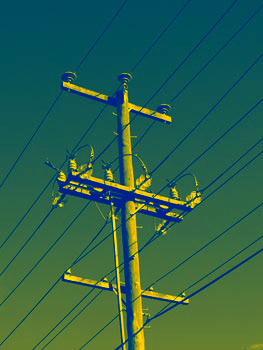SA payback outlined
 South Australia's electricity distributor has agreed to about 75,000 customers after lengthy blackouts last year.
South Australia's electricity distributor has agreed to about 75,000 customers after lengthy blackouts last year.
About 155,000 properties were without power out as wild winds toppled trees and powerlines during the December storms.
Most were blacked out for a matter of hours or days, though it took several weeks for homes and businesses in the Adelaide Hills to be reconnected.
SA Power Networks spokesperson Paul Roberts said it was the worst storm the company had faced in years.
“It was probably about three times worse than any previous storm we've experienced, both in terms of the guaranteed service level payments we'll have to make, and the minutes of supply lost for customers,” he said.
“We're going to be making payments... to about half the customers affected.”
Customers can expect compensation of $100 for a 12-hour blackout, up to $605 for a blackout 48 hours or longer.
The total cost of the payouts is expected to hit $20 million.
However, times where SA Power Networks crews were unable to start repairs are not included in the calculations.
“For example, we were unable to undertake restoration work in the Adelaide Hills for many hours as wind gusts reached up to 120kph and the winds did not abate until around 9:00am,” Mr Roberts said.
Energy Minister Tom Koutsantonis says he will ask the Essential Services Commission to remove the 48-hour cap.
Also in South Australia, nuclear power advocate and former Liberal senator Sean Edwards' could be moving into politics.
“I want South Australia to become a nuclear powered state,” says the section dedicated to nuclear energy on Mr Edwards’ webpage.
The SA Liberal party's leader Steven Marshall has described Mr Edwards as a “good friend” who had made a “great contribution to the people of South Australia in the Federal Parliament”.
“In recent years of course, he has been a strong advocate for nuclear energy here in Australia, more particularly here in South Australia,” Mr Marshall said.
“[His opinion] it differs from the parliamentary party. He's mainly an advocate for nuclear energy. He sees it as clean and affordable.”
But Mr Marshall says it does not signal a shift in the party’s views about a planned nuclear waste dump.
“We believe the economic risk was too high, we have a much greater ambitions for South Australia than becoming a nuclear waste dump,” he said.







 Print
Print